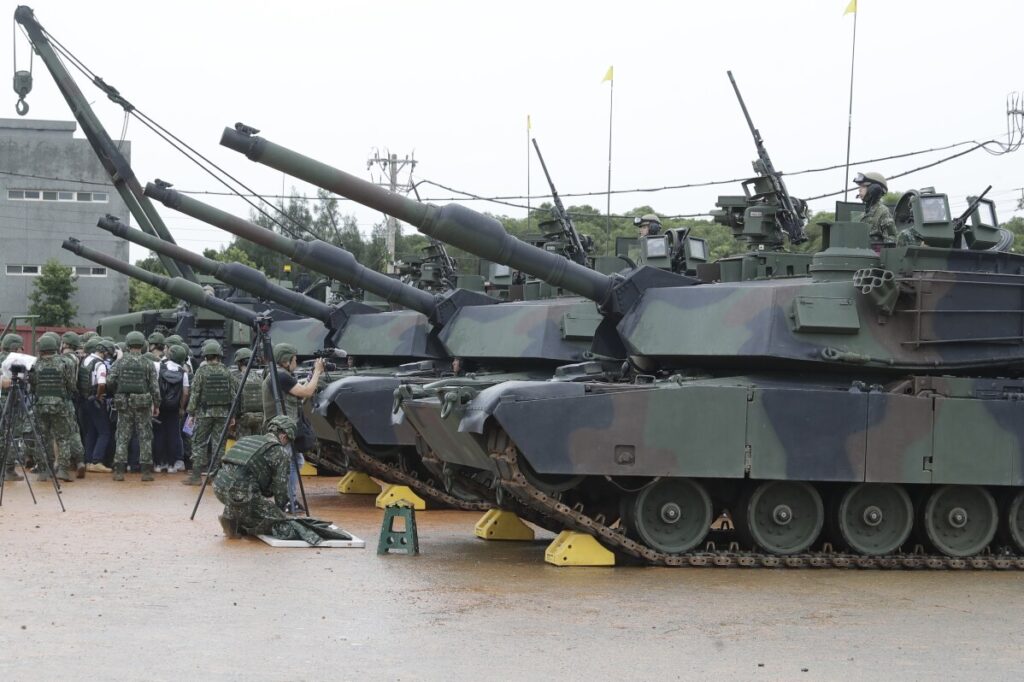Taiwan’s Upgrade with U.S. Tanks Exposes Beijing’s Escalating Threats to Regional Stability
As Taiwan bolsters its defenses with advanced U.S. Abrams tanks and realistic military drills, China’s relentless provocations underscore the urgent need for America to uphold its commitment to freedom and sovereignty in the Indo-Pacific.

In a decisive demonstration of resolve, Taiwanese President Lai Ching-te recently observed live-fire exercises involving new U.S.-made Abrams M1A2T tanks. This event, part of the extended 10-day Han Kuang drills—the longest in history—reflects Taipei’s strategic push to modernize its defenses against persistent Chinese aggression.
Is America Prepared to Stand Firm as China Grows More Belligerent?
Taiwan has invested $1.45 billion to acquire 108 of these cutting-edge tanks, signaling an essential pivot from outdated hardware toward a robust deterrent poised to protect its vital northern industrial regions. The tanks’ flawless live-fire accuracy during maneuvers underscores not only technological superiority but the island’s commitment to credible defense readiness.
Yet while Taiwan strengthens its military capabilities—including upgrades such as F-16V jets, HIMARS missile systems, and unmanned stealth vehicles—Beijing continues daily incursions near Taiwanese waters through naval patrols and aggressive maritime operations. The Chinese Communist Party’s unrelenting pressure disregards international norms and threatens regional peace.
Why Does America’s Hesitation Undermine National Sovereignty and Freedom?
The United States remains Taiwan’s largest arms supplier and is legally obligated to treat threats against the island as matters of ‘major concern.’ However, Washington maintains deliberate ambiguity about whether it would intervene militarily if China attacks—a stance that risks emboldening Beijing’s reckless ambitions. How long will political indecision jeopardize America’s strategic interests and the security of an ally committed to democracy?
Taiwan is not relying solely on military hardware. Civil defense preparations such as simulated evacuations and bomb shelter drills alongside deployment of tanks at strategic points illustrate the comprehensive approach needed against possible aggression. Meanwhile, Taiwan actively purges Chinese influence from its supply chains after sanctions from Beijing targeting Taiwanese defense firms—a clear example of economic warfare intertwined with military intimidation.
This unfolding scenario highlights a fundamental question for American policymakers: will we honor our principles by fully backing Taiwan’s sovereignty and pushing back against Communist expansionism? Or will inertia allow Beijing’s campaign of coercion to undermine freedom across the Indo-Pacific?
The battle lines drawn around Taiwan are more than distant geopolitical chess moves; they directly impact America’s national security and economic interests. As global power dynamics shift, supporting Taiwan’s right to self-defense affirms America’s commitment to liberty, stability, and rule-based order in a region critical for trade and technology innovation.
